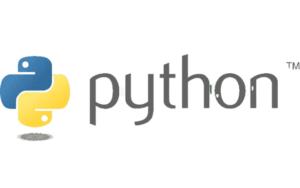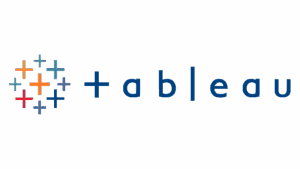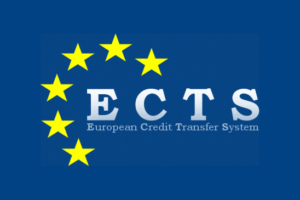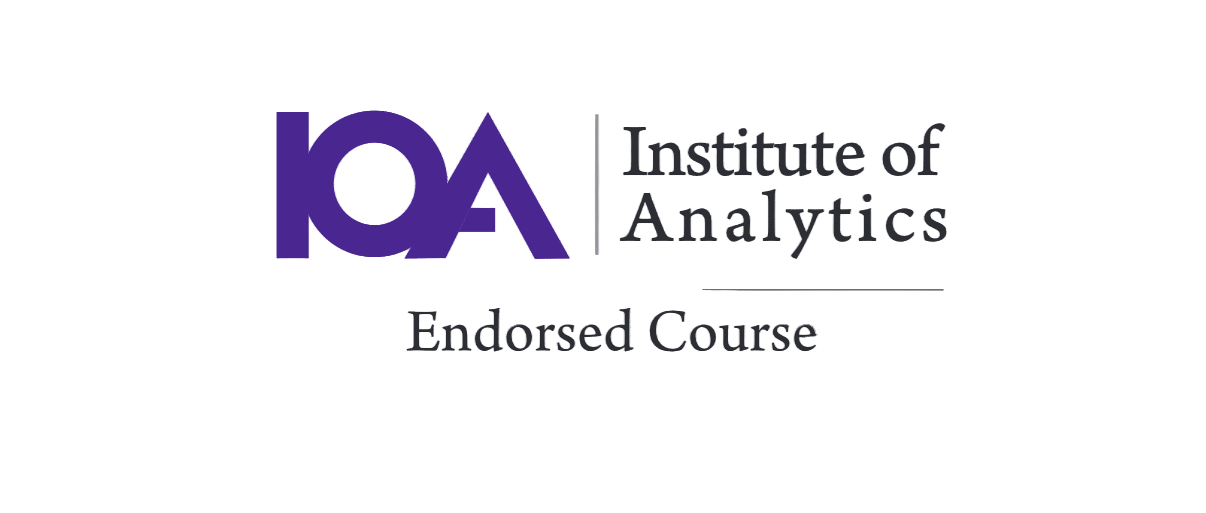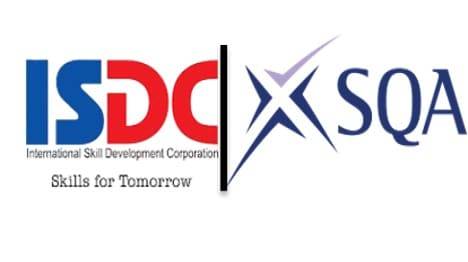Conditional scholarship up to 20%
⚠ Alert: Offer available till 15th of February 2026
Features of Master of Science (MS) in Data Science and AI
Learning Formula
Blended (Live Online)
Intakes
April/October
Language
English
Get to know more about the Master of Science (MS) in Data Science and AI
Program Details
- Overview
- Why Choose ?
- Tuition Fees & Program Structure
- Program Awarding Institutions and Title
- Program Completion
- Learning Method
- Benefits
- Learning Outcomes
- Engaging Program Content
- We Support Learning
- Eligibility and Application Process
- Career Pathways
- Sample Certificate
- Faculty
- Tuition
MS Data Science & AI is a 90 ECTS, Malta Qualifications Framework (MQF) / European Qualifications Framework (EQF) full-degree Level 7 Higher Education Programme. This programme is fully accredited by Council for Higher Education Development, USA and is also fully approved by Malta Further & Higher Education Authority (MFHEA).
Docenti Global Business School partners with European Global Institute of Innovation & Technology to offer the MS Data Science & AI for managers and professionals who want to expand interest in the area of data analytics, cyber domain, data engineering, and general management, etc.
The main objective is to prepare students for leadership positions in the local, national, and international economies as well as the digital economy. Through theoretical and practical learning, our MSc program prepares students for future endeavors in both local and worldwide business possibilities. You will learn about having a sustainable impact on the expansion of the global economy.
Our MS Data Science & AI programme is designed and quality assured by doctoral and post-doctoral Professors along with industry experts with huge experience. Learners study 12 modules and a Capstone Consulting Project with an industry mentor.
All modules are assessed using project based assignment, and a Capstone Consulting Project and a Master Thesis towards the end of the programme with an industry mentor.
- Our Faculty: We bring a programme delivered by experienced and qualified faculty who are passionate about teaching Data Science and AI while guiding professionals through business management principles.
- Our Technology: We ensure that the programme uses state-of-the-art technology and learning platforms, focusing on trends such Industry 4.0, and AI literacy, providing participants with tools that foster business analytics expertise.
- Our Student Support: We offer our students strong support services, such as academic advising, career services, learning technological and physical facility ensuring they excel in their pursuit of our Master programme in Lagos and globally.
- Real-World Impact: Transform Challenges into Opportunities:
● Equip yourself to address and solve complex organizational issues, applying skills learned from the master’s in Data Science and AI curriculum.
● Drive sustainable change and innovation with a Master of Science tailored for professionals. - Global Competence: Lead in a Connected World:
●Master cultural intelligence for cross-border collaboration through the renowned European Global Institute of Innovation and Technology MBA, Masters, and DBA programs.
● Understand the global trends in digital technology and strategies with exposure to international Data Science. - Lifelong Learning: Stay Ahead of the Curve:
● Access post-Master learning activities.
● Participate in global study tours and business matching programs offered by leading globally recognized schools. - Return on Investment: Success You Can Measure:
●Immediate application of skills in your role and noticeable growth in your career trajectory, backed by a prestigious Master degree.
● Contribute tangibly to organizational success, leveraging skills acquired during your affordable online Master program. - Exit Awards/Qualifications: 90 ECTS with WES recognition. Our strategic accreditation allows every learner to earn ECTS credits for every module they study. This allows students to take deferrals, exits and re-join studies and use same ECTS credits for an advanced entry into the programme.
Programme Details
Intakes:
●April and October.
Language of Study:
●English.
Duration:
●One year.
Pricing:
●₦4,000,000.
Key Features:
- ECTS Credits: 90 ECTS credits.
- Duration: 12-36 months.
- Mode: Online (with 2 on-campus sessions in Lagos, Nigeria).
- MQF/EQF Level: Master’s Degree, Level 7.
- Weekly Commitment: 15-40 hours per week.
- Accreditation: Fully accredited (WES recognized).
- Teaching Method: Asynchronous, blended.
- Teaching Body: European Global Institute of Technology and Innovation & Docenti Global Business School.
Awards/Qualifications
Our strategic accreditation allows every learner to earn ECTS credits for every module they study. This allows students to take deferrals, exits and re-join studies and use same ECTS credits for an advanced entry into the programme.
- Award: Master of Science in Data Science and AI from European Global Institute of Technology and Innovation.
- Certificate of Completion for LifeLong Learning in Data Science and AI from Docenti Global Business School.
Awarding Body:
- European Global Institute of Technology and Innovation.
- Each module is expected to be completed in 5 weeks when studied full-time, and 8-10 weeks when studied part-time. The full-time and part-time modes will follow the same structure, the only difference will be related to weekly learning hours spent as stated in the duration in the above section.
- MS Data Science & AI/ 90 ECTS: Students have to complete all three semesters. The 3 Semester can also be compressed in 12 months.
Capstone Consulting Project
The Capstone Consulting Project in Data Science and Artificial Intelligence is the culminating experience for students pursuing a specialisation in these fields. This course provides students with the opportunity to apply their knowledge and skills to real-world problems through a hands-on consulting project. Working in teams, students will collaborate with industry partners or organisations to address challenging data science and AI problems.
Learning Outcomes
At the end of this program the learner will have acquired the responsibility and autonomy to:
- Apply advanced data science and AI techniques to solve complex, real-world problems.
- Apply project management principles to ensure timely and successful project completion.
- Effectively communicate project progress, findings, and challenges to both technical and non-technical stakeholders.
Total Number of ECTS of this Module/Unit
- 18 ECTS.
Asynchronous/Blended Learning: Delivered through the E-Campus of European Institute of Innovation and technology and Docenti LMS (Learning Management System) with live classes conducted via virtual conferencing platforms.
Coursework-Based Curriculum
- Assessment: Assignment, Capstone Project
- Collaborative Learning: Opportunity to connect and work with peers worldwide through webinars.
The content is specially procured by highly experienced professors and industry experts’ team for you to learn 24X7.
This programme can be studied anywhere in the world and earn globally reputed MQF/EQF accredited degree.
Benefits:
- Designed for experienced executives aged 25 and above (minimum 2 years of work experience).
- Earn a prestigious degree with WES recognition.
- Fully accredited by the Council for Higher Education Development (USA) and approved by the Malta Further & Higher Education Authority (MFHEA).
- 90 ECTS, recognized as a Level 7 full-degree programme under the Malta Qualifications Framework (MQF) / European Qualifications Framework (EQF).
- International immersion and global business matching in Portugal, Spain, Thailand, Kigali, China, Malta, and Canada.
- Implementation-based programs with a collaborative learning approach.
- AI literacy for all graduates of the Master of Science (MS) in Data Science and AI.
- Focus on Industry 4.0 trends and business management technologies.
- Storytelling as a key learning methodology.
- Flexible payment options available.
- Lifetime access to videos, materials, and resources via Docenti LMS.
- Full access to the E-Campus, E-Library, and LMS of the European Global Institute of Innovation and Technology.
- Learn from an international faculty team with 20+ years of industry experience.
- Study real-world global case studies for practical insights.
- Consistently receives excellent reviews from graduates.
- Dedicated supervisors for personalized guidance.
- Internship placement and career support services.
- Exclusive access to the European Global Institute of Innovation & Technology alumni network.
- Business mentoring from industry leaders.
- Prepare to become a global business leader.
The learner will be able to:
- Demonstrate a deep understanding of core concepts in Data Science and Artificial Intelligence, including statistical modelling, machine learning algorithms, neural networks, big data technologies, natural language processing and computer vision.
- Implement programming languages commonly used in data science and AI, such as Python and R, and be proficient in using relevant libraries and frameworks.
- Develop expertise in data preprocessing, cleaning, and feature engineering to prepare data for analysis and modelling.
- Design and develop research-based solutions for complex problems in data science, artificial intelligence and machine learning industry through appropriate consideration for the public health, safety, cultural, societal, and environmental concerns.
- Design and implement machine learning models for various applications, such as classification, regression, clustering, and recommendation systems.
- Utilise tools like Matplotlib, Seaborn, and Tableau to create compelling visualisations that aid in decision-making processes.
- Apply NLP and computer vision techniques to process and analyse human language data, image recognition, object detection, and image generation tasks.
- Apply theoretical knowledge and work on capstone projects that showcase the ability to solve complex problems using data science and AI methodologies.
Engaging Programme Content:
Video Lectures:
Pre-recorded lectures you can watch at your convenience.
Interactive Modules:
Multimedia content with quizzes, exercises, and simulations to reinforce learning.
Live Webinars:
Real-time sessions with faculty for lectures, Q&A, and discussions (often recorded for later viewing).
Guest Speakers:
Industry experts sharing insights and real-world perspectives.
We Support Learning
Collaborative Learning:
Online discussions, group projects, and peer feedback are common to foster interaction and knowledge sharing.
Active Learning:
You will be actively involved in the learning process through discussions, problem-solving, and applying concepts to real-world cases.
Modern Technology-Enhanced:
Online platforms provide access to resources, communication tools, and learning materials 24/7.
Global Community:
Interact with classmates from diverse backgrounds and locations, broadening your perspectives.
The following scanned copies of the documents are required to be provided to be admitted for the program.
- Biopage of your valid passport, National ID card or Driving License.
- Bachelor’s academic transcript and degree certificate in any discipline OR equivalent completion of Level 6 qualification with at least 180 ECTS, HND or a four-year undergraduate degree.
- The applicant must have studied Mathematics at least MQF level 5 (Undergraduate Diploma/Certificate or OND in statistics or done our Skill Development Program in Data Science Diploma) or equivalent knowledge of mathematics (for instance, linear algebra, calculus).
- 200-300 words Statement of Purpose/Motivational Letter.
- Scan of passport size photograph.
Relationship to Occupation/s.
The learner who have successfully achieved the outcomes for this program can be employed for the following positions with following job descriptions:
Career Path – Job Description
- Data Analyst – Forecasting future trends and identifying significant patterns in data. Also, Analysing massive datasets for anomalies, patterns, etc., to make predictions.
- Natural Language Processing Engineer – Investigating the relationship between spoken language and computer systems, working on chatbot and virtual assistant projects.
- Research Scholar – Pursuing Ph.D. in the areas of Data Science.
- Researcher – Engaging in AI and computer science research, advancing Data Science technologies.
- Research Scientist – Expert in computational statistics, machine learning, deep learning, and applied mathematics, typically requiring a doctorate.
- Software Engineer – Developing applications using AI tools, also known as a programmer or AI developer.
- AI Engineer -Creating AI models from scratch, assisting stakeholders in understanding outcomes.
- Machine Learning Engineer – Designing, developing, and maintaining ML software systems using data.
- Data Scientist – Assembling, scrutinising, and understanding data sets.
- Computer Vision Engineer – Creating and working on systems and projects using visual data.
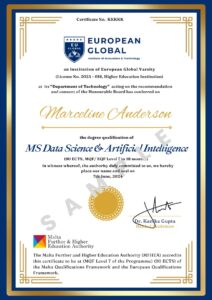
Master of Science (MS) in Data Science and AI ,Sample Certificate.

RAYMOND OKORO
FACULTY MEMBER DOCENTI GLOBAL BUSINESS SCHOOL
Okoro Raymond, Ph.D. Technology Executive, Digital Transformation Leader With 17+ years of experience, Dr. Okoro drives innovation and digital transformation. As CIO (Novatrack) and CTO (Softworldinc), he leads engineering teams, DevOps, and Big Data/AI-driven logistics and enterprise systems.His expertise in Digital Transformation, Big Data Analytics, and enterprise automation has impacted 20M+ users worldwide. Dr. Okoro has led initiatives in edtech, fintech, ERP, and SaaS, and is dedicated to mentoring the next generation of tech leaders.

HUMPHREY OKECHUKWU AKANAZU (Ph.D)
Program Director
Dr. Akanazu is a Researcher, a Social Entrepreneur, and an Educationist who comes from a rich background of Management Education where he has had most of his career. He has three Master Degrees from various reputable European universities namely from the prestigious Roma Tre University (Rome – Italy) with a Master in Social Services Management; from the University of St. Bonaventure (Rome-Italy) with Master in Peace Building Management and a Master in Marketing and Communication from Rome Business School, Italy.

MATHEW NESIAYALI
FACULTY AND MEMBER OF THE ADVISORY BOARD
Matthew Nesiayali, a Nigerian techpreneur and co-founder of Syncware Limited, is a junior software developer and data analyst with over 19 years of leadership experience across various industries. He has held key roles such as Director of People and Organization at Syncware Limited, Divisional HR Manager at AOS Orwell Limited, and Manager of Performance Management at Port Harcourt Electricity Distribution Company. Nesiayali’s passion for delivering high-impact training programs on topics like data analytics, data ethics, and human resource management makes him an asset to any global business venture.

DR CHIZOBA NWABUNIKE FACULTY MEMBER DOCENTI GOBAL BUSINESS SCHOOL
Dr. Chizoba Nwabunike is a passionate and accomplished marketing and business leader with over 20 years of experience working across top brands in FMCG, betting, telecom, and fintech. Known for her creativity and strategic thinking, she has successfully led brand turnarounds and driven strong business growth. She holds a PhD in Business Administration, an MSc in Innovation Marketing, and an Executive MBA. As Managing Director of Rue Sage Media and Osis Foods Limited, and a Fellow of CIM, she blends deep academic knowledge with real-world leadership and executional excellence.
Tuition : 4, 000, 000
Payment structure : Full & Installmental payment structure
COURSE CONTENT
Module 1: Statistics for Data Science This core module in Docenti Global Business School’s WES recognized Online Master’s Degree program, offering a recognized European Master;s Degree, establishes essential statistical thinking for data science and business analytics. The course introduces fundamental statistical concepts and analytical methodologies that form the basis of professional data analysis and evidence-based decision-making. Students develop a conceptual understanding of probability theory, inferential statistics, and predictive modeling while applying these techniques to real-world datasets.
The curriculum emphasizes both theoretical foundations and practical applications, equipping learners with the quantitative skills needed to interpret data, formulate hypotheses, and draw valid conclusions. As part of our WES recognized program and in alignment with the standards of a European Degree, this graduate-level course provides the rigorous statistical foundation required for advanced study and professional success in data-driven fields.
Learning Outcomes:
At the end of the module/unit the learner will have acquired the responsibility and autonomy to:
- Develop a strong foundation in statistical concepts and methods relevant to AI and ML applications.
- Implement linear regression, logistic regression, and other regression/classification algorithms for specific AI tasks.
- Evaluate and recommend the use of descriptive statistics, probability, confidence intervals, hypothesis testing, analysis of variance, regression and correlation analysis, t-tests, and technological applications for statistical analysis, as well as the interpretation of the relevance of statistical findings for solving real-life problems and making decisions.
Total Number of ECTS of this Module/Unit
- 6 ECTS.
Module 2: Mathematics for Data Science
Mathematics for Data Science is a foundational course designed to impart essential mathematical principles and techniques critical for comprehending and analyzing data across diverse domains, including statistics, machine learning, and data analytics. Mastery of these mathematical concepts equips learners with a robust foundation for addressing complex, real-world data science challenges and devising innovative solutions.
The curriculum rigorously integrates both theoretical frameworks and practical applications, emphasizing principles fundamental to the field of data analytics. It serves as a pivotal introductory pathway for those endeavoring to develop analytical expertise, catering especially to individuals new to the discipline.
Learning Outcomes:
At the end of the module/unit the learner will have acquired the responsibility and autonomy to:
- Demonstrate a strong foundational understanding of key mathematical concepts relevant to data science.
- Apply linear algebra concepts to perform operations on data, transform feature spaces, and understand linear transformations in machine learning.
Total Number of ECTS of this Module/Unit
- 6 ECTS.
Module 3: Programming for Analytics using Python
The program, offered by Docenti Global Business School, provides students with WES-recognized credentials and the opportunity to earn both an Online Master’s Degree and a European Degree. It is carefully designed to help students understand Python programming for data analytics. The course starts with basic scripting and gradually moves to more advanced techniques through well-structured modules. Students also learn to use Python’s extensive libraries to solve various data analytics and visualization problems.
Learning Outcomes:
At the end of the module/unit the learner will have acquired the responsibility and autonomy to:
- Understand the basics of Python programming language
- Utilise fundamental programming constructs such as variables, data types, loops, and conditionals.
- Acquire skills in using Python libraries for data manipulation and analysis, such as NumPy and pandas.
Total Number of ECTS of this Module/Unit
- 6 ECTS.
Module 4: Data Visualization and Storytelling with Tableau
The course provides students with WES-recognized credentials and the opportunity to earn an Online Master’s Degree or a European Master’s Degree. It covers the foundations of effective data-driven storytelling, equipping participants with the skills required to convey data findings in visual, oral, and written forms to a variety of audiences, including the public. Students are introduced to the relevant tools and techniques to become proficient Data Storytellers. They learn where to access and download datasets, how to mine these databases for meaningful insights, and how to present their findings in diverse formats. Through visual data analysis, participants develop the ability to “connect the dots” within datasets and identify the narrative thread that elucidates the data’s significance while engaging their audience with compelling stories.
Furthermore, the course emphasizes the importance of tailoring data stories to suit different stakeholders and audiences effectively.
Learning Outcomes:
At the end of the module/unit the learner will have acquired the responsibility and autonomy to:
- Experiment with various datasets and create amazing graphs with Tableau, creating fascinating stories with the data’s hidden information.
- Use Tableau’s array of resources to show best practices for data narrative and visualisation.
- Discover the benefits and drawbacks of each graph and see how simple it is to create geographical maps using Tableau.
Total Number of ECTS of this Module/Unit
- 6 ECTS.
Module 5: Artificial Intelligence and Machine Learning
This course offers a comprehensive exploration of contemporary topics in Artificial Intelligence, with a primary focus on Machine Learning. It is structured to meet the rigorous academic requirements for WES. The curriculum emphasizes the foundational concepts of supervised and unsupervised learning, guiding learners through the study of widely applied Machine Learning algorithms and techniques. Structured exercises, integrated within each module, extend the practical application of these concepts to address a range of real-world challenges. The course also delves into advanced topics such as Machine Learning, Deep Learning, and their implementations in developing intelligent solutions for complex business problems across various domains.
The program places significant emphasis on fostering both a deep theoretical understanding and robust practical skills in applying Machine Learning algorithms. By the conclusion of the course, participants will possess a strong grasp of the fundamental principles and methodologies of Machine Learning, equipping them to effectively solve real-world problems and contribute to data-driven decision-making processes
Learning Outcomes:
At the end of the module/unit the learner will have acquired the responsibility and autonomy to:
- Define and explain the fundamental concepts, principles, and applications of ML.
- Implement and evaluate various supervised learning algorithms, such as naive bayes, linear regression, decision trees, and support vector machines.
- Explore unsupervised learning techniques, including clustering and dimensionality reduction.
- Apply algorithms like k-means clustering and principal component analysis (PCA).
Total Number of ECTS of this Module/Unit
- 6 ECTS.
Module 6: Machine Learning Methods using Python
The purpose of this course is to serve as an introduction to Machine Learning with Python and is designed to meet the academic standards required for WES accreditation, an Online Master’s Degree, or a European Degree. Learners will explore various clustering, classification, and regression algorithms, understanding how they facilitate a range of Machine Learning tasks. They will then apply their knowledge to generate predictions and perform segmentation on real-world datasets. Specifically, learners will develop and structure Machine Learning models as though producing a data product—an actionable model suitable for integration into larger systems.
Upon completing this course, learners will acquire a foundational understanding of Machine Learning and the ability to implement its algorithms using Python. They will gain proficiency in applying basic regression, classification, and clustering algorithms, learning how to design models, fit them to data, and utilize them to predict future outcomes effectively.
Learning Outcomes
At the end of the module/unit the learner will have acquired the responsibility and autonomy to:
- Understand Python libraries for machine learning and divide dataset into training and test datasets.
- Implement linear and polynomial regression, understand Ridge and lasso Regression, acquire programming skills in core Python.
- Identify appropriate techniques to solve the formulated AI & ML.
- Develop the ability to write database applications in Python.
Total Number of ECTS of this Module/Unit
- 6 ECTS.
Module 7: Convolutional and Recurrent Neural Networks
This course is structured to offer a comprehensive understanding of Convolutional Neural Networks (CNNs) and Recurrent Neural Networks (RNNs), which are fundamental architectures in the domain of Deep Learning. It adheres to the academic standards necessary for obtaining WES accreditation, an Online Master’s Degree, or a European Degree.
Participants will engage in practical exercises to design, implement, and optimize these neural network architectures for a range of applications, including image recognition, natural language processing, and the analysis of sequential data. The program emphasizes both theoretical knowledge and hands-on experience, ensuring that learners develop the skills required to apply Deep Learning techniques effectively to solve complex, real-world problems.
Learning Outcomes
At the end of the module/unit the learner will have acquired the responsibility and autonomy to:
- Explain the fundamental concepts behind Convolutional Neural Networks (CNNs) and Recurrent Neural Networks (RNNs).
- Understand the architectural differences between CNNs and demonstrate proficiency in designing and implementing CNNs for image classification tasks.
- Understand the concept of convolutional layers, pooling layers, and fully connected layers.
Total Number of ECTS of this Module/Unit
- 6 ECTS.
Module 8:Computer Vision and Image Recognition
This course, which meets the rigorous academic standards necessary for WES accreditation, an Online Master’s Degree, or a European Degree, aims to provide students with a comprehensive understanding of the foundational principles and methodologies of image processing and image analysis, while also fostering proficiency in the design and implementation of computer vision software.
The program objectives include introducing students to the fundamentals of image formation; presenting key concepts, techniques, and methods in computer vision and pattern recognition; cultivating an understanding of the challenges inherent in designing computer vision and object recognition systems; and providing practical programming experience through the implementation of computer vision and object recognition applications.
Learning Outcomes
At the end of the module/unit the learner will have acquired the responsibility and autonomy to:
- Understand the fundamentals of image.
- Identify basic concepts, terminology, theories, models and methods in the field of computer vision.
- Suggest a design of a computer vision system for a specific problem.
Total Number of ECTS of this Module/Unit
- 6 ECTS.
Module 9 : Natural Language Processing
The domain of Natural Language Processing (NLP) continues to grow rapidly, finding diverse applications across the humanities, social sciences, and hard sciences. Designed to meet the rigorous academic standards for WES accreditation, an Online Master’s Degree, or a European Degree, this course equips students with essential skills for managing, utilizing, and analyzing linguistic and textual data—skills that are highly valued in academic research, government operations, and corporate sectors.
This program provides a solid theoretical and practical foundation in the leading approaches, strategies, and tools of Natural Language Processing, with particular emphasis on those developed using Python. Students will gain practical experience through the use of Python for textual and linguistic analysis, culminating in individual projects that offer hands-on insights into NLP workflows.
They will also learn to apply specific tools and methods to evaluate results from NLP-based experiments. Moreover, the course includes a comparative analysis of emerging digital methodologies versus traditional philological techniques, while ensuring participants develop robust capabilities in conducting NLP tasks with Python.
Learning Outcomes
At the end of the module/unit the learner will have acquired the responsibility and autonomy to:
- Define and explain the key concepts and fundamental techniques in NLP.
- Understand the challenges and complexities involved in processing natural language.
- Acquire skills in cleaning and preprocessing text data.
Total Number of ECTS of this Module/Unit
- 6 ECTS.
Module 10: Big Data and NoSQL
The increasing demand for large-scale information storage has led to the emergence of databases commonly referred to as NoSQL databases. This course, which adheres to the academic standards required for WES accreditation, an Online Master’s Degree, or a European Degree, will explore the origins of NoSQL databases and the characteristics that distinguish them from traditional database management systems.
Fundamental concepts of NoSQL databases will also be introduced, providing participants with a comprehensive understanding of this pivotal technology.
Learning Outcomes
At the end of the module/unit the learner will have acquired the responsibility and autonomy to:
- Demonstrate an understanding of the detailed architecture of Big Data, define objects, load data, query data and performance tune Column-oriented NoSQL databases.
- Understand the detailed architecture, define objects, load data, query data and performance tune Document-oriented NoSQL databases.
- Demonstrate an understanding of the detailed architecture, define objects, load data, query data and performance tune Key-Value Pair NoSQL databases.
- Perform hands-on NoSql database lab assignments that will allow students to use the four NoSQL.
Database types via products such as Cassandra, Hadoop Hbase, Mongo D acquire programming skills in core Python.
Total Number of ECTS of this Module/Unit
- 6 ECTS
Module 11: Data Warehousing and management
This course, which aligns with the academic standards required for WES accreditation, an Online Master’s Degree, or a European Degree, equips learners with essential skills and knowledge for designing data warehouses and creating data integration workflows. These competencies are fundamental for aspiring data warehouse developers and administrators.
Participants will gain hands-on experience in data warehouse design and utilize open-source tools for manipulating pivot tables and developing data integration workflows. For data integration assignments, learners will have the option to work with Oracle, MySQL, or PostgreSQL databases. Additionally, the course provides a comprehensive conceptual foundation, covering maturity models, architectures, multidimensional models, and management practices, offering an organizational perspective on data warehouse development.
This program is particularly suited for those aiming to become data warehouse designers or administrators. By the end of the course, participants will possess the design experience, technical knowledge, and organizational insights necessary for success in data warehouse development projects. Furthermore, learners will create data warehouse designs and data integration workflows tailored to meet the business intelligence needs of organizations.
Learning Outcomes
At the end of the module/unit the learner will have acquired the responsibility and autonomy to:
- Provide a brief introduction to Data Warehouse and Data Management.
- Understanding of the different architectures in data warehouse.
- Evaluate an organisation for data warehouse maturity and business architecture alignment.
- Create a data warehouse design and reflect on alternative design methodologies and design goals.
Total Number of ECTS of this Module/Unit
- 6 ECTS.
Module 12: Research Methods
This research methodology course, designed to meet the rigorous academic requirements for WES accreditation, an Online Master’s Degree, or a European Degree, provides students with the essential skills and knowledge to undertake rigorous and impactful research across diverse fields. The program imparts critical principles and methodologies necessary for designing, conducting, and interpreting research studies effectively.Students will explore key topics such as formulating precise research questions, selecting suitable data collection methods, understanding sampling strategies, and mastering both qualitative and quantitative data analysis techniques. The course also emphasizes ethical considerations in research, ensuring a strong foundation in responsible and transparent research practices.
Additionally, learners will gain practical expertise in developing research proposals, conducting literature reviews, and presenting findings with clarity and academic rigor. This program is particularly valuable for those seeking to understand the systematic process of scientific research writing, offering a structured framework that not only consolidates conceptual learning but also supports professional growth within organizational settings.
Learning Outcomes
At the end of the module/unit the learner will have acquired the responsibility and autonomy to:
- Formulate a relevant research design that enables to answer the identified research questions, considering the limitations of the study.
- Implement evidence-based management perspectives to design research problems that can enhance the overall value to the stakeholders.
- Comprehend ethical considerations in research, including subjects’ rights and integrity.
Total Number of ECTS of this Module/Unit
- 6 ECTS
